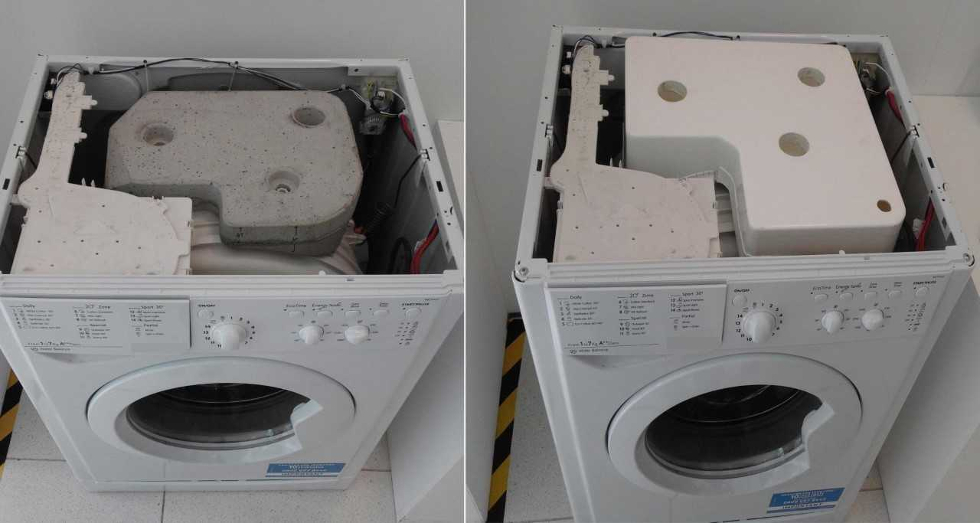
According to researchers at Nottingham Trent University, the solution could save the UK almost 45,000 tonnes of CO2 a year in transportation.
Prof Amin Al-Habaibeh, a professor in intelligent engineering systems, and undergraduate Dylan Knight, who studies BSc (Hons) Product Design, developed the counterweight to stop washing machines from vibrating during spin cycles.
Currently, manufacturers use concrete blocks weighing over 25kg to prevent washing machines vibrating heavily.
The use of concrete increases appliance weight and creates carbon emissions through the production and transportation of the material.
Knight tested the vacuum formed plastic prototype – which weighs less than 3kg when unfilled – and found it was as effective as a concrete counterweight when filled with water.
Prof Al-Habaibeh explained that the density of concrete is about 2400kg/m3, while the density of water is 1000kg/m3.
“So what we have done is to increase the size of the water container to take as much space as possible,” he said. “There are other ideas to compensate for the difference in density which we are developing with our industrial partner, but they are commercially sensitive to share at this stage.”
The new watertight design cuts the weight of the home appliance by 30 per cent, which in turn lowers the cost of fuel through appliance transportation, also reducing the risk of physical injury when lifting and installing the product.
According to NTU, research suggests that reducing the weight of a truck carrying washing machines by 100kg could save approximately 8.5g of CO2 and 0.35 litres of fuel per 100km in transportation distance.
Around 3.5 million washing machines are sold every year in the UK. If each was fitted with the new lightweight device – which is left unfilled until the appliance is installed - the carbon savings would equate to around 44,625 tonnes of CO2 and a reduced fuel consumption of 183,750 litres, when transported on average for only 50km.
The project has been run as part of a live brief from product design company Tochi Tech Ltd, who are working with researchers and students at the university to find innovative and sustainable solutions to appliance manufacturing.
https://www.theengineer.co.uk/issues/january-2015-online/xeros-aims-to-launch-domestic-bead-laundry-machine/





JLR teams with Allye Energy on portable battery storage
This illustrates the lengths required to operate electric vehicles in some circumstances. It is just as well few electric Range Rovers will go off...